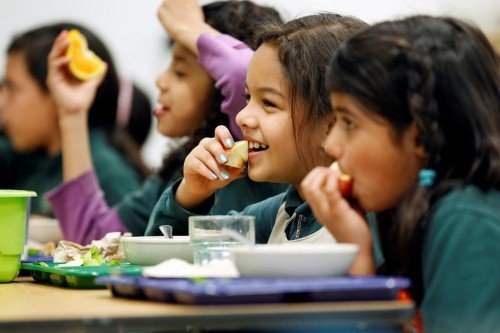Putting children’s safety first – the value to employers
 Fay Gibbin, training manager, at Busy Bees Training, part of the Busy Bees nursery group, currently oversees over 1,000 learners undertaking childcare, management and catering apprenticeships as well as 20 short courses delivered at 12 venues throughout the country. Here, Fay offers her views on the importance of basic paediatric first aid training for employees in the retail sector that regularly come into contact with children in the workplace.
Fay Gibbin, training manager, at Busy Bees Training, part of the Busy Bees nursery group, currently oversees over 1,000 learners undertaking childcare, management and catering apprenticeships as well as 20 short courses delivered at 12 venues throughout the country. Here, Fay offers her views on the importance of basic paediatric first aid training for employees in the retail sector that regularly come into contact with children in the workplace.
Health and safety is part and parcel of everyday business and life in the workplace. Although it might be seen as less crucial in soft skill industries, every employer has a duty to keep its staff and customers safe.
In most organisations, a dedicated employee will have undergone some form of adult first aid training in order to provide the necessary provision in the workplace and ensure that if an incident happens, they are able to act and follow the necessary protocols.
However, it might be easy to overlook the importance of being able to provide paediatric first aid, which is even more crucial for organisations that rely on custom from families and children.
The need
Although parents are usually the responsible party and Health & Safety Executive (HSE) regulations do not place any legal duty on businesses to make first-aid provision for non-employees, such as the public or children, it could be argued that business owners have a duty of care to any persons on their premises.
However, despite this, many workers are not actually subject to any form of paediatric first aid training and there are no current regulations that say organisations should ensure their staff do so.
Not all organisations operate a business where staff regularly come into contact with children, but for those that do, there is a distinct difference between adult first aid and paediatric first aid which needs to be understood.
Implementing both forms of training could not only help save a life in the workplace but also at home. To put this into context; figures from St. John’s Ambulance show that 140,000 lives are lost each year that could have been saved by basic first aid training.
Steps to take
First and foremost, responsible employers must consider providing paediatric first training to staff as it certainly pays to not only take care of your employees but also your customers and, in turn, your reputation.
Should an incident take place on your premises with no one on the scene equipped to deal with the situation, the potential consequences are unimaginable.
Waiting for the emergency services to arrive is insufficient, as the first few minutes of an emergency is often the most critical period and is the point when a child’s life could be saved.
For example, if a child becomes unconscious, a simple tilt of the head can help to prevent them from choking and blocking their airway.
Most team leaders or senior staff will have received some sort of first aid training as part of their induction. However, outside child-specific sectors such as childcare, many do not have the necessary skills required to deal with an emergency involving a child.
We want more people to understand the importance of paediatric first aid and have recently launched a campaign, Child Safety First, in order to give businesses, individuals and parents the necessary knowledge should they be involved in accident with a child.
Incorporate paediatric first aid into the wider health and safety strategy
For many business leaders, it’s important to plan ahead for the potential accidents that might occur in the workplace, and this should look beyond accidents only involving adults or employees.
Health and safety measures are about providing adequate provision and mitigating risk, so having one or several members of staff sufficiently trained in paediatric first aid could not only help save a child’s life, but will also position that brand as a responsible and credible one.
There will always be the threat of illness or accidents, but if employers can put provisions in place to ensure that the workforce is adequately prepared to deal with those emergencies then, as a nation, we can start to put children’s safety first.
Fay Gibbin is training manager at the Busy Bees Early Years Training Academy
Putting children’s safety first – the value to employers
Fay Gibbin, training manager, at Busy Bees Training, part of the Busy Bees nursery group, currently oversees over 1,000 learners
Safety & Health Practitioner
SHP - Health and Safety News, Legislation, PPE, CPD and Resources Related Topics
New IOSH study centre aims to support Level 6 Diploma
How interactive theatre is changing the face of wellbeing training
Online rooftop training with virtual reality exercises launched in the UK

